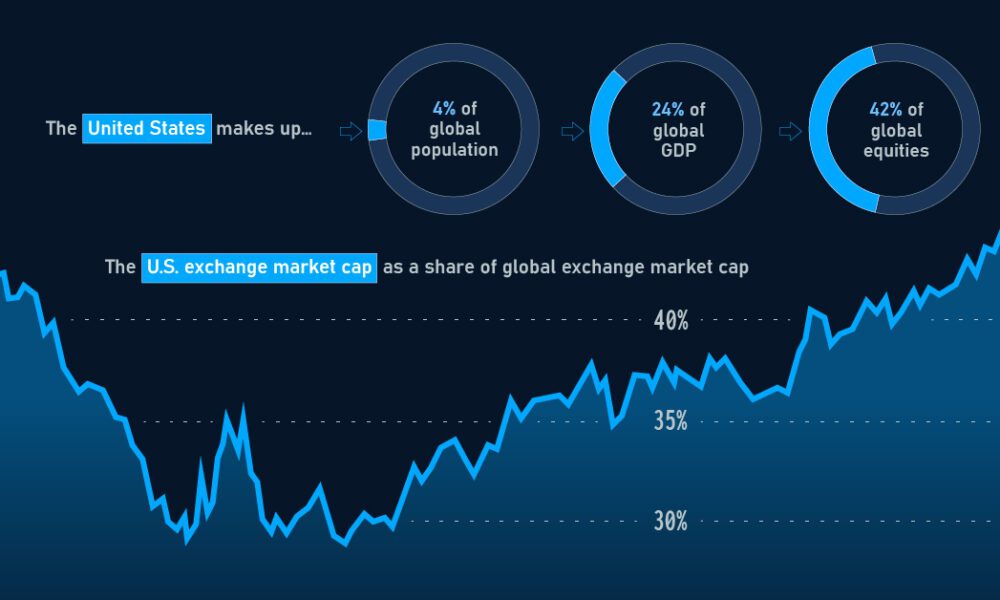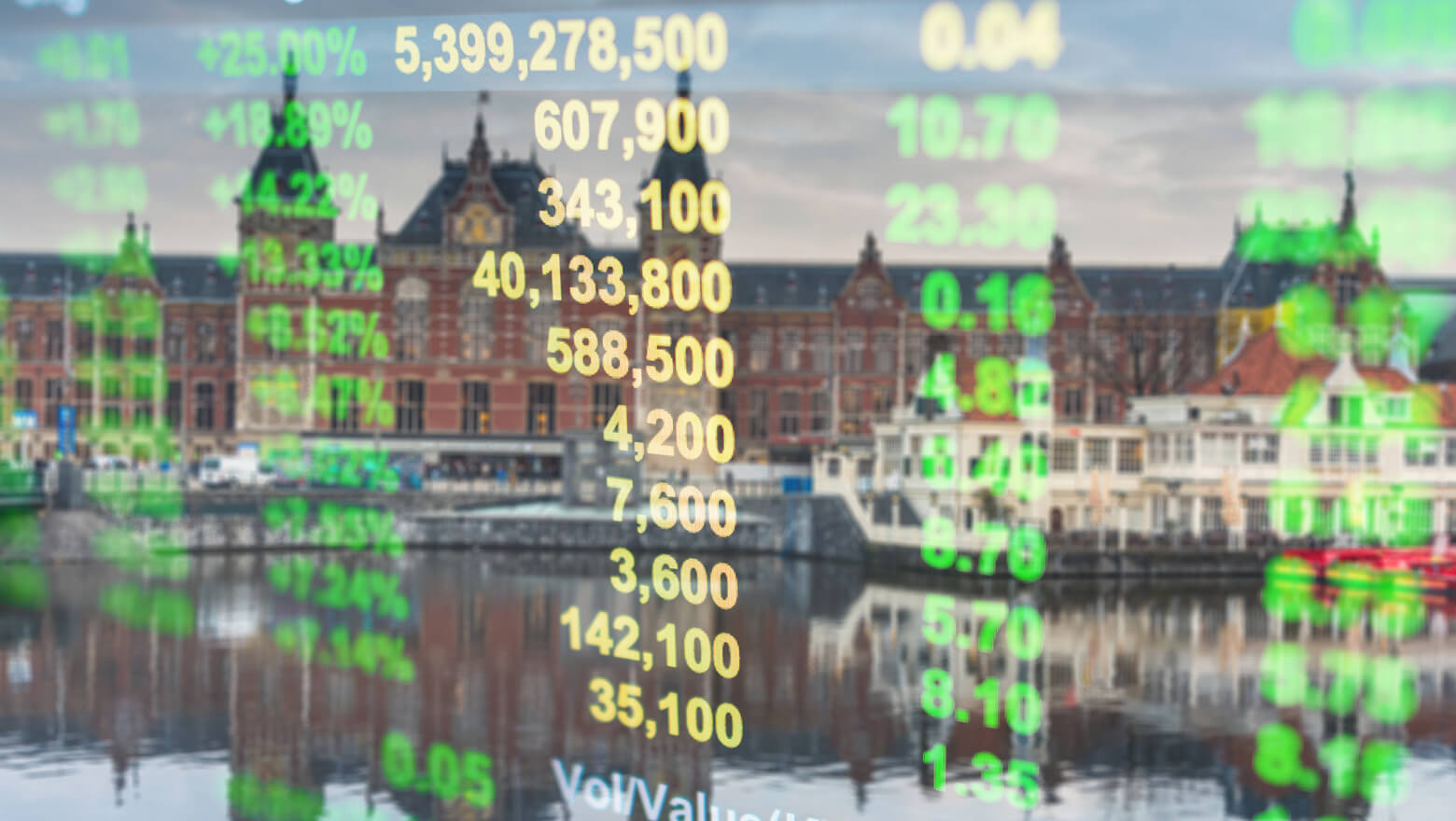Stock markets play a crucial role in the global economy by facilitating investment, wealth creation, and capital formation. Different countries operate their own exchanges, each contributing to international trade and finance. This article explores major stock markets worldwide, their significance, top indices, and recent trends.

Major Stock Markets Around the World
1. North America
1.1 New York Stock Exchange (NYSE)
-
Founded: 1792
-
Location: New York, USA
-
Market Capitalization: ~$25 trillion (as of 2024)
-
Key Indices: Dow Jones Industrial Average (DJIA), S&P 500, NYSE Composite
-
Significance: The largest stock exchange globally, home to major blue-chip companies.
1.2 Nasdaq Stock Market
-
Founded: 1971
-
Location: New York, USA
-
Market Capitalization: ~$19 trillion
-
Key Indices: Nasdaq Composite, Nasdaq-100
-
Significance: Known for technology stocks like Apple, Microsoft, and Amazon.
2. Europe
2.1 London Stock Exchange (LSE)
-
Founded: 1801
-
Location: London, UK
-
Market Capitalization: ~$3.5 trillion
-
Key Indices: FTSE 100, FTSE 250
-
Significance: One of the oldest stock exchanges, pivotal in European finance.
2.2 Euronext
-
Founded: 2000 (merger of Paris, Brussels, Amsterdam exchanges)
-
Location: Amsterdam, Netherlands
-
Market Capitalization: ~$7 trillion
-
Key Indices: AEX, CAC 40, BEL 20
-
Significance: A pan-European exchange covering multiple markets.
2.3 Frankfurt Stock Exchange (FSE)
-
Founded: 1585
-
Location: Frankfurt, Germany
-
Market Capitalization: ~$2.2 trillion
-
Key Indices: DAX 40
-
Significance: Germany’s primary exchange, home to companies like Volkswagen and Siemens.
3. Asia-Pacific
3.1 Tokyo Stock Exchange (TSE)
-
Founded: 1878
-
Location: Tokyo, Japan
-
Market Capitalization: ~$6.5 trillion
-
Key Indices: Nikkei 225, TOPIX
-
Significance: Asia’s largest stock exchange, major influence in the global economy.
3.2 Shanghai Stock Exchange (SSE)
-
Founded: 1990
-
Location: Shanghai, China
-
Market Capitalization: ~$7.5 trillion
-
Key Indices: SSE Composite, SSE 50
-
Significance: A major driver of China's economic growth.
3.3 Hong Kong Stock Exchange (HKEX)
-
Founded: 1891
-
Location: Hong Kong
-
Market Capitalization: ~$4.5 trillion
-
Key Indices: Hang Seng Index
-
Significance: A bridge between China and global investors.
3.4 Bombay Stock Exchange (BSE) & National Stock Exchange (NSE)
-
Founded: 1875 (BSE), 1992 (NSE)
-
Location: Mumbai, India
-
Market Capitalization: ~$4.2 trillion (combined)
-
Key Indices: Sensex (BSE), Nifty 50 (NSE)
-
Significance: India’s largest exchanges, reflecting rapid economic growth.
4. Other Prominent Markets
-
Toronto Stock Exchange (TSX), Canada – Major exchange in North America.
-
Australian Securities Exchange (ASX), Australia – Key market in the Asia-Pacific region.
-
Brazil Stock Exchange (B3), Brazil – Largest stock market in Latin America.
-
Stock Market Trends & Analysis

Key Factors Influencing Stock Markets
-
Interest Rates: Central bank policies impact market liquidity.
-
Inflation Trends: High inflation can lead to market corrections.
-
Geopolitical Risks: Trade wars, conflicts, and policies affect investor sentiment.
-
Technological Innovations: AI, blockchain, and fintech shape market dynamics.
-
Corporate Earnings: Strong earnings drive stock market growth.
Investment Strategies for 2024
-
Diversification: Spread investments across different regions.
-
Growth Stocks: Focus on technology and renewable energy sectors.
-
Dividend Stocks: Consider stable blue-chip companies.
-
Index Funds & ETFs: Ideal for passive investors.
FAQs
Q1: What is the largest stock market in the world?
A: The New York Stock Exchange (NYSE) is the largest by market capitalization (~$25 trillion).
Q2: Which stock market is best for technology investments?
A: The Nasdaq Stock Market, known for hosting tech giants like Apple, Amazon, and Google.
Q3: What are the risks of investing in global stock markets?
A: Risks include market volatility, inflation, geopolitical tensions, and interest rate changes.
Q4: How can I invest in foreign stock markets?
A: Through global ETFs, mutual funds, ADRs (American Depository Receipts), or opening an international brokerage account.
Q5: What are the best strategies for stock market investment?
A: Diversification, long-term investing, following market trends, and focusing on strong fundamental stocks.





.gif)














Sign in
to continue to ilmkidunya.com